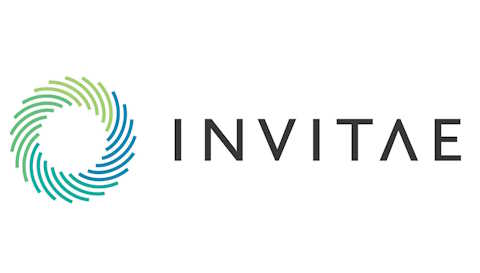Conflicts Considerations — Law Firm Financial/Fiduciary Conflicts in the UK, DOJ Calls Crypto Conflicts Concern
Posted on
“DOJ Pulls Back from Choosing NY Law Firm for Binance Oversight, Citing FTX Connections” —
- “The Department of Justice (DOJ) is reportedly reconsidering selecting a prominent New York law firm to handle a critical assignment related to Binance, due to the firm’s prior work for rival exchange FTX.”
- “Sullivan & Cromwell, the law firm managing FTX’s bankruptcy proceedings, was initially designated as Binance’s independent monitor. This appointment was a stipulation under the $4.3b agreement where Binance acknowledged culpability for infringing upon US money-laundering regulations and trade sanctions.”
- “Further, former federal prosecutor Sharon Cohen Levin, a partner at the firm, was slated to lead the monitorship team.”
- “However, Bloomberg reported Tuesday that DOJ officials have raised concerns regarding criticism levied against the law firm due to its prior work for FTX, which was a Binance competitor at one point.”
- “In light of these concerns, the department is evaluating alternative candidates for the monitorship role. Sources told the outlet that FinCEN remains intent on appointing Sullivan & Cromwell.”
- “Sullivan & Cromwell represented the now-defunct crypto exchange prior to its collapse and throughout its Chapter 11 proceedings. The firm subsequently submitted invoices exceeding $170m for its services.”
- “In February, FTX investors filed a class-action lawsuit against the law firm, alleging the firm’s complicity in the $8b fraud.”
- “The lawsuit contends that Sullivan & Cromwell’s advisory role to FTX throughout 2021 and 2022 provided it with a unique vantage point. This could have allowed the firm to gain deep insight into the FTX entities’ convoluted organizational structure.”
“‘One plus one makes two’: Court of Protection finds conflict of interest within law firm structure” —
- “The Court of Protection handed down a judgment in March 2024 concerning a law firm, Irwin Mitchell, who acted as a professional deputy whilst also offering asset management services through an affiliated company within its structure. Having considered the underlying legal principles, the Court of Protection determined that a conflict of interest was present in such an arrangement and could not be overcome unless the affiliated asset management company did not charge for its services.”
- “The case has undoubtedly caused a stir for law firms who operate, or are considering operating, in a similar way to Irwin Mitchell. However, it potentially also has further-reaching implications for all kinds of fiduciary relationships and fiduciary service providers where possible conflict issues have not been fully appreciated.”
- “Because IMTC is a wholly owned subsidiary of Irwin Mitchell LLP, and Irwin Mitchel Holdings Ltd is both a controlling member of Irwin Mitchel LLP and the sole owner of IMAM, the question was raised in the Court of Protection whether IMTC was able to act without a conflict of interest where it instructed IMAM to look after the relevant person’s assets.”
- “A deputy (like all fiduciaries) should not enter into engagements in which they have or can have a personal interest conflicting, or which possibly may conflict, with the interests of the protected party, unless they are expressly authorised to do so (known as the ‘self-dealing rule’). Transactions where such a conflict exists are capable of being set aside by the court. As a matter of agency law, a principal may ratify the conflicted acts of an agent, but only the Court of Protection can ratify conflicted acts by a deputy (as opposed to the protected party, who lacks capacity, or a family member).”
- “In the Irwin Mitchell case, the Judge presiding, Her Honour Justice Hilder, held that the primary question she was required to determine was whether the appointment by IMTC as deputy of IMAM as asset manager for PW’s funds gave rise to a conflict of interest. It is an established principle of law, restated by the House of Lords in Boardman v Phipps (1967), that the relevant question to ask is whether ‘the reasonable man’ (a common benchmark in legal tests), looking at the relevant facts and circumstances of the particular case, would think that there was a ‘real sensible possibility’ of conflict (known as the ‘conflict of interest rule’).”
- “There is no direct English authority on the question whether the engagement by a fiduciary of a related investment company presented a ‘real sensible possibility’ of conflict. IMTC as the applicant before the Court of Protection accepted that there was a “theoretical potential” of conflict but argued that there was no real sensible possibility because it had adopted procedures which eliminated that potential.”
- “In support of this argument, IMTC cited two foreign (and therefore non-binding) cases in which no conflict of interest was found to exist: Jones v AMP Perpetual Trustee Company NZ Ltd (1994) (New Zealand) and HSBC (HK) Ltd v Secretary of State for Justice (2001) (Hong Kong). The relevant facts and conclusions of these cases are succinctly summarised in the judgment. However, HHJ Hilder respectfully considered the court’s reasoning in neither case to be persuasive.”
- “HHJ Hilder’s conclusion on the question of an existence of a conflict was summarised in two steps: (1) the decision to appoint IMAM was made by IMTC in its fiduciary role and (2) IMTC is financially better off if IMAM is appointed. She said: ‘[at] a most basic level, those two concessions amount to recognition of the existence of a conflict of interest: one plus one makes two.’ There was a ‘very clear, not remotely fanciful actual conflict of interest in IMTC appointing IMAM to manage PW’s funds.'”
- “HHJ Hilder did not agree that the procedures Irwin Mitchell had put in place could, or did, extinguish the actual conflict because they did not remove the financial benefit to IMTC if IMAM were to be appointed. HHJ Hilder commented that such procedures (including the way they used scorecards as part of the beauty parade process) were vulnerable to biases, subjective interpretation, and human error. She also noted that IMAM would better know what boxes it needs to tick as part of the process, giving it an advantage over its competitors.”
- “Overall, HHJ Hilder concluded that a way to remove the conflict altogether would be for IMTC to waive any fees otherwise due to IMAM where IMTC was the instructing deputy. She recognised that Irwin Mitchell would be unlikely to adopt this model given that it lacked commercial and practical sense for them but said that, without removing the financial benefit, the processes did not get to the heart of the conflict of interest.”
- “The final question for HHJ Hilder to consider was whether the Court should ratify the conflict now. However, she concluded that there was not sufficient evidence before her to do so and invited the parties to agree further directions. The point is therefore left open for another date, should Irwin Mitchell wish to retain the appointment of both IMTC and IMAM in PW’s case.”









